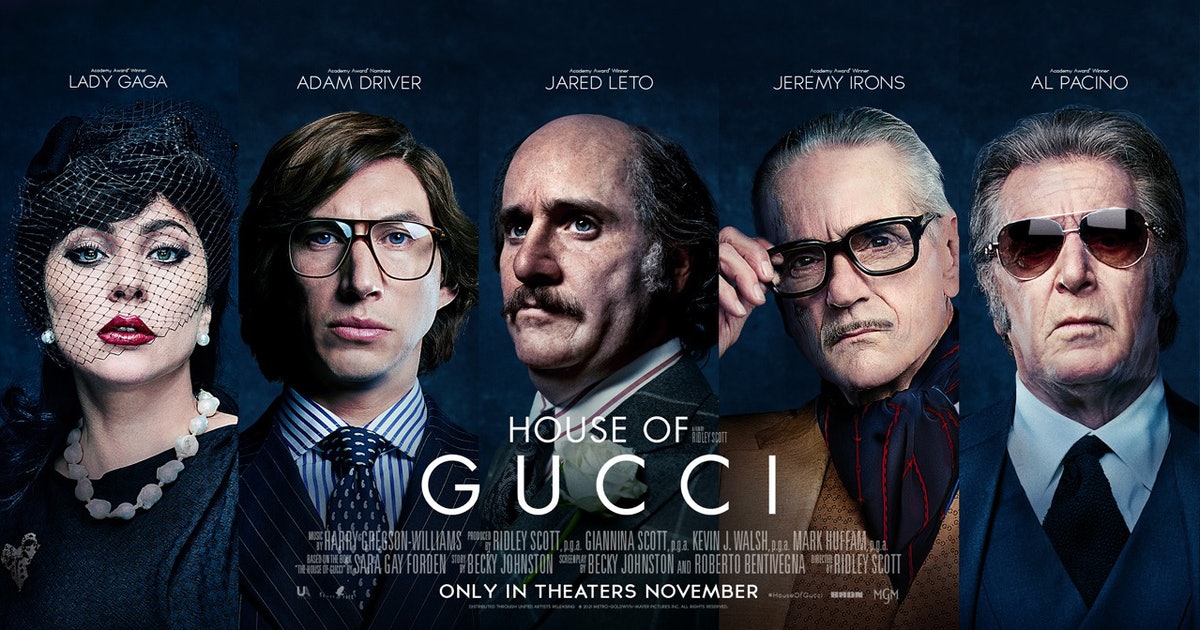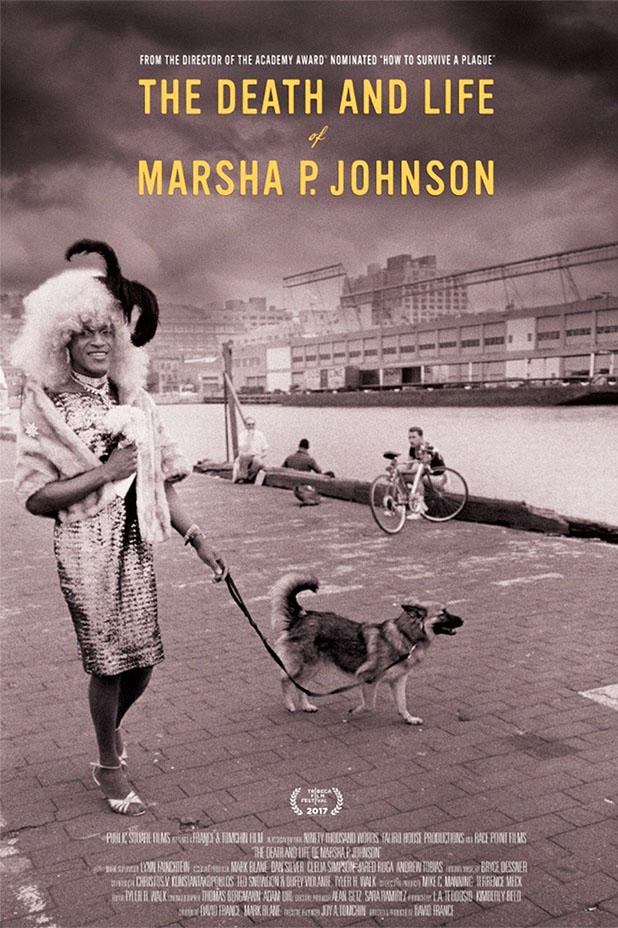(USA 2021)
A dear friend coined a handy if snotty phrase she employs when she enjoys a film or a play that she doesn’t find particularly cerebral: “It’s not a major work but I liked it.” I’ll borrow her phrase for Ridley Scott’s House of Gucci, an engrossing and splashy biopic that doesn’t seem like the nearly three-hour investment it demands.
The story chronicles the rocky relationship of Patrizia Reggiani (Lady Gaga), a girl from the wrong side of the tax, so to speak, who marries up; and Maurizio Gucci (Adam Driver), her catch: that Gucci, the heir to the fashion dynasty. Her ambition pushes her husband and the family business to unexpected heights but destroys everything else in the process. Every. Single. Thing.
Janty Yates’s costumes are every bit as important to the story as Roberto Bentivegna’s script and Scott’s keen direction. She captures the royal air that (perhaps once) was Gucci. Yates deserves an Oscar. Gaga and Driver deliver standout performances that are worth the investment this film demands. Al Pacino and Jared Leto soar in their supporting roles, sometimes upstaging Gaga and Driver. The casting is a wet dream.
House of Gucci did not touch me or move me. I’m no better for seeing it. The characters are irredeemable. Still, it kept my attention and it entertained me. I would see it again. In a heartbeat.
With Jeremy Irons, Salma Hayek, Jack Huston, Reeve Carney, Camille Cottin, Vincent Riotta, Alexia Muray, Mia McGovern Zaini, Florence Andrews, Madalina Diana Ghenea, Youssef Kerkour, Mehdi Nebbou, Miloud Mourad Benamara, Antonello Annunziata, Catherine Walker, Martino Palmisano
Production: Metro-Goldwyn-Mayer, Bron Creative, Scott Free Productions
Distribution: United Artists Releasing, Universal Pictures
158 minutes
Rated R
(Landmark Century) B



